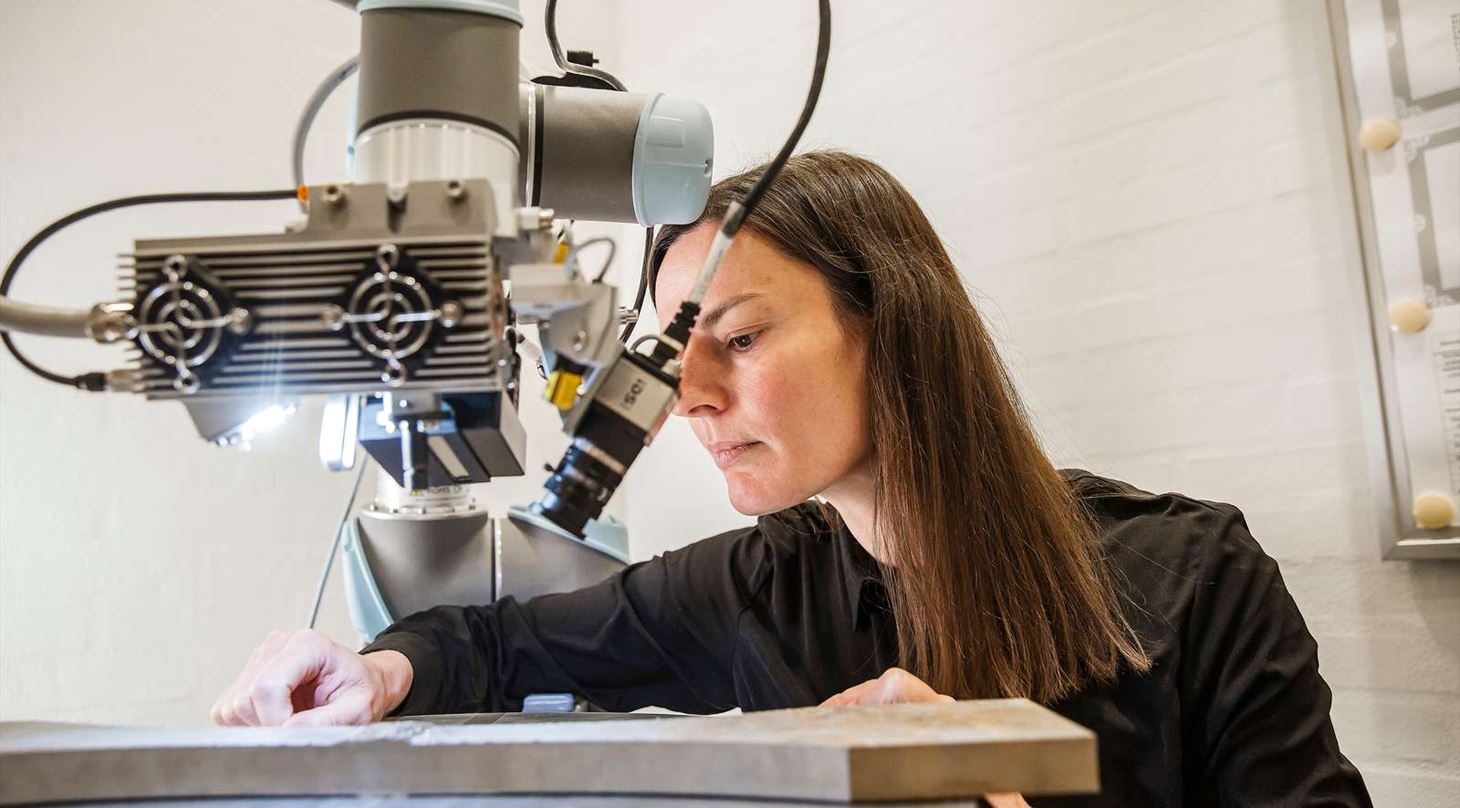
Case stories with advanced characterisation
The industrial applications of x-ray and neutron techniques cover a wide range of areas, and some examples are given in the cases below.
The cases illustrate that both large and small companies within different fields can benefit from analyses using these techniques.
Read more in our selection of case stories:
 New knowledge about technology for current leads has provided the company Mark & Wedell with entirely new business opportunities. This is the result of a MADE project in collaboration with the Danish Technological Institute.
New knowledge about technology for current leads has provided the company Mark & Wedell with entirely new business opportunities. This is the result of a MADE project in collaboration with the Danish Technological Institute.
Read more: Fully electric: MADE project opens the door to new markets
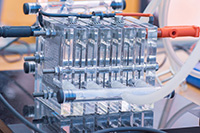 The Danish company Advanced Surface Plating optimizes electrolysis cells to produce green hydrogen based on alkaline electrolysis. In this context, there was a need for insight into the processes taking place inside the cells, and neutron technology was used with the help of specialists from the Danish Technological Institute in advanced characterization.
The Danish company Advanced Surface Plating optimizes electrolysis cells to produce green hydrogen based on alkaline electrolysis. In this context, there was a need for insight into the processes taking place inside the cells, and neutron technology was used with the help of specialists from the Danish Technological Institute in advanced characterization.
Read more: Neutron technology provided insight into electrolysis cells
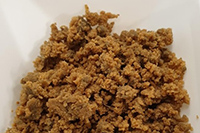 The Scottish company CelluComp develops and commercialises Curran®, a material developed from the extraction of nanocellulose fibres of root vegetables. To better understand the mechanical properties of the material for different applications, CelluComp did measurements at an advanced research facility with help from the Danish Technological Institute.
The Scottish company CelluComp develops and commercialises Curran®, a material developed from the extraction of nanocellulose fibres of root vegetables. To better understand the mechanical properties of the material for different applications, CelluComp did measurements at an advanced research facility with help from the Danish Technological Institute.
Read more: Helping CelluComp understand mechanical properties of sustainable materials
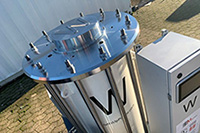 With the help of specialists from the Danish Technological Institute, the Danish startup company WattsUp Power has used synchrotron X-ray measurements to investigate how a new hybrid material for flywheels is affected during operation. This took place in a MADE Demonstration project.
With the help of specialists from the Danish Technological Institute, the Danish startup company WattsUp Power has used synchrotron X-ray measurements to investigate how a new hybrid material for flywheels is affected during operation. This took place in a MADE Demonstration project.
Read more: Testing of new material paves the way for the future of composite flywheels
 ROCKWOOL wanted to find out how their stone wool insulation actually performs during heat treatment, and for that, they needed a closer characterization. To get the necessary answers, they benefitted from the collaboration between the Danish Technological Institute and the German synchrotron facility, Deutsches Elektronen-Synchrotron - DESY.
ROCKWOOL wanted to find out how their stone wool insulation actually performs during heat treatment, and for that, they needed a closer characterization. To get the necessary answers, they benefitted from the collaboration between the Danish Technological Institute and the German synchrotron facility, Deutsches Elektronen-Synchrotron - DESY.
Read more: Examining structure properties of heat-treated stone wool insulating material for ROCKWOOL
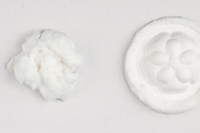 The Swedish start-up Yangi AB has developed a dry-forming technology that enables the production of a uniquely resistant structure, free from plastic layers. They teamed up with the Danish Technology Institute (DTI) and DESY to get a better understanding of how manufacturing compression conditions affect the mechanical properties of more sustainable packaging solutions.
The Swedish start-up Yangi AB has developed a dry-forming technology that enables the production of a uniquely resistant structure, free from plastic layers. They teamed up with the Danish Technology Institute (DTI) and DESY to get a better understanding of how manufacturing compression conditions affect the mechanical properties of more sustainable packaging solutions.
Read more: Optimizing a novel cellulose dry-forming method
 The Danish Technological Institute, in collaboration with Lyras, conducted X-ray measurements on milk whey before and after UV treatment to ensure that the quality of the food is not compromised during the process.
The Danish Technological Institute, in collaboration with Lyras, conducted X-ray measurements on milk whey before and after UV treatment to ensure that the quality of the food is not compromised during the process.
Read more: X-ray measurements document gentle pasteurization of milk
 Hey Planet sells protein products based on insects. In collaboration with the Danish Technological Institute, the company has studied the microstructure of the extruded protein in great detail using synchrotron X-ray imaging.
Hey Planet sells protein products based on insects. In collaboration with the Danish Technological Institute, the company has studied the microstructure of the extruded protein in great detail using synchrotron X-ray imaging.
Read more: Synchrotron X-ray reveals microstructure in extruded insect flour
 With an increasing automatization of bread production, Lantmännen Unibake requires a deeper understanding of their product. Using x-ray analyses, Danish Technological Institute has characterized the company’s kneading process.
With an increasing automatization of bread production, Lantmännen Unibake requires a deeper understanding of their product. Using x-ray analyses, Danish Technological Institute has characterized the company’s kneading process.
Read more (in Danish): Dybere forståelse for ’den gode dej’ skal optimere Lantmännen Unibake’s produkter
 Danish Technological Institute has participated in a collaboration to develop a nanostructured catalysis material for motorcycles, with small quantities of rare earth metals added. To determine the elemental distribution in the material, it has been investigated with neutron diffraction.
Danish Technological Institute has participated in a collaboration to develop a nanostructured catalysis material for motorcycles, with small quantities of rare earth metals added. To determine the elemental distribution in the material, it has been investigated with neutron diffraction.
Read more (in Danish): Nanokatalysemateriale til motorcykler undersøgt med neutroner
 The paint production company Hempel aims to create durable and more environmentally friendly products using knowledge obtained from x-ray analyses, conducted in collaboration with Danish Technological Institute.
The paint production company Hempel aims to create durable and more environmentally friendly products using knowledge obtained from x-ray analyses, conducted in collaboration with Danish Technological Institute.
Read more (in Danish): Viden om kontaktflader i maling bidrager til Hempels produktudvikling
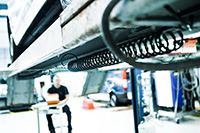 Through neutron analyses performed at Reactor Institute Delft in Holland, Danish Technological Institute has analyzed particle filters from the company LiqTech, to investigate whether soot is distributed evenly in a filter, or whether it is accumulated in localized areas.
Through neutron analyses performed at Reactor Institute Delft in Holland, Danish Technological Institute has analyzed particle filters from the company LiqTech, to investigate whether soot is distributed evenly in a filter, or whether it is accumulated in localized areas.
Read more (in Danish): Neutronanalyser undersøger sodophobning i partikelfiltre til dieselbiler
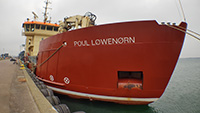 In a collaboration with the company Exilator, Danish Technological Institute has investigated a nano catalysis material, optimized for purification of smoke from ships, and determined which elements that are located at the surface of the material.
In a collaboration with the company Exilator, Danish Technological Institute has investigated a nano catalysis material, optimized for purification of smoke from ships, and determined which elements that are located at the surface of the material.
Read more (in Danish): Renere skibsrøg ombord på Poul Løwenørn

Using neutrons, it is possible to measure deformations in crystal lattices of metals, which can then be translated into knowledge of the distribution of residual stress in the material.
Read more (in Danish): Vestas tjekker støbeprocesser med neutroner
The company Alumeco had measurements performed at a neutron facility of residual stress through 20 cm of aluminum. This type of high-tech quality control can provide Alumeco with an advantage in the global aeronautic marked as suppliers of ‘stress-free aluminum’.
Read more (in Danish): Hightech kvalitetskontrol af aluminium hos Alumeco
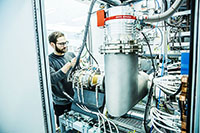
Surface coatings can play a defining role for the function and durability of tools and other components. Danish Technological Institute has analyzed a nitrogen-implanted chromium nitride coating using x-rays at the facility Swiss Light Source in Switzerland.
Read more (in Danish): Optimering af overfladebelægninger gennem avanceret røntgenanalyse
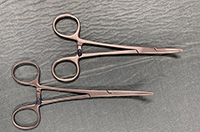
The Danish start-up company Caretag has created a solution to keeping track of surgical instruments. This is done by attaching an RFID tag to the instruments, so that they can be tracked before, during, and after use. This solution requires that the RFID tag can be sterilized, and that it does not detach.
Read more (in Danish): Neutronbillede viser det indre af RFID-chip
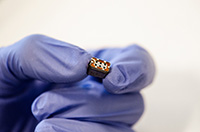 In a collaboration with a Danish hearing aid company, Danish Technological Institute has developed the world’s smallest methanol driven energy system, that can be re-charged in only 20 seconds. In such a small electronic device, it is a challenge to keep track of the distribution and movement of methanol and water during charging and discharging.
In a collaboration with a Danish hearing aid company, Danish Technological Institute has developed the world’s smallest methanol driven energy system, that can be re-charged in only 20 seconds. In such a small electronic device, it is a challenge to keep track of the distribution and movement of methanol and water during charging and discharging.
Read more (in Danish): Verdens mindste metanol-brændselscelle til høreapparater filmet med neutronkamera
